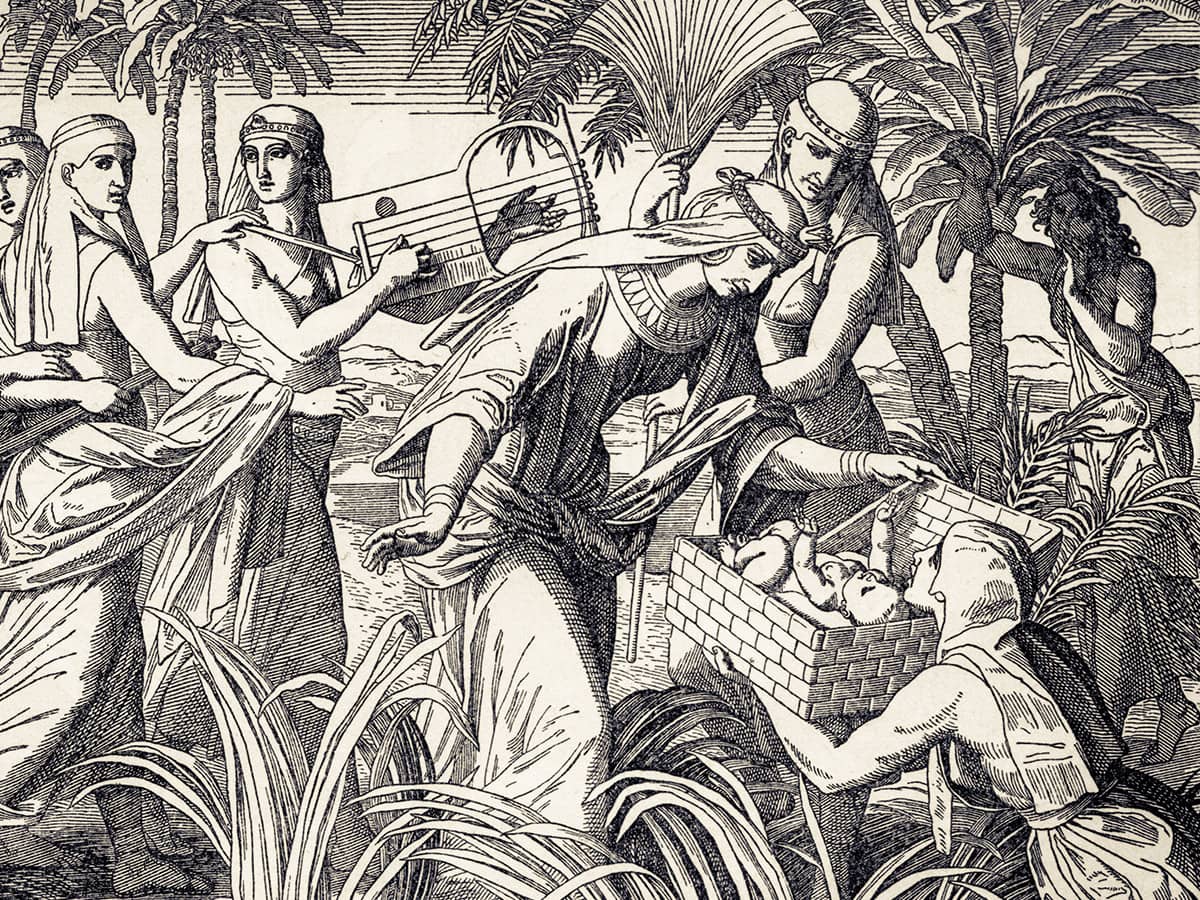But even though Biblical stories can seem to lack any substantive connection, their very juxtaposition forces them into dialogue with one another, like two sonnets in a sonnet sequence. And this juxtaposition generates meaning.
The story of Jethro and Moses is a beautiful moment in the Exodus story. Since the Israelites were dislodged from Egypt three months before, a familiar political model has been coalescing: Israel versus everyone else. By definition, the burgeoning nation is sworn enemy to the Egyptians who enslaved them, to the Amorites and the Canaanites, who will have their land dispossessed by Israel, and to Amalek with whom Israel just did battle. It seems Israel can't get along with anyone.
But between Moses and Jethro, the priest of the Midianites, there has been only goodwill. When Moses first arrived in Midian, Jethro offered him his daughter in marriage, his sheep to tend, and his support when Moses received his calling from God. Now, Jethro resurfaces to restore to Moses his family, who had returned to Midian prior to the Exodus.
But there is another facet to Jethro's appearance. When he observes Moses in his role as leader, Jethro is troubled, and wisely advises his son-in-law that he is working too hard: "The thing that thou doest is not good. Thou shall surely wear away, both thou, and this people with thee: for this thing is too heavy for thee."
Jethro counsels him to teach others how to lead and distribute authority throughout the people. "Provide out of the people able men, such as fear God, men of truth to be rulers of thousands, and rulers of hundred, rulers of fifties and rulers of tens." On the other hand, he says, "Be thou the link between the people and God."
Jethro departs for his own land only after demonstrating that despite his primary attachment to his people, he has only friendship for the Israelites. And in his judicious words to Moses, Jethro offers the key to understanding the difficulties in the upcoming narrative of the Sinai experience.
This might account for the complicated, even chaotic narrative of the transmission of the Ten Commandments. Who actually sees and hears God, for instance? It's ambiguous. "And the Lord Said to Moses, Lo, I come to thee in a thick cloud that the people may hear when I speak to thee." He speaks to Moses, but intends Israel to hear. If that's the case, why must Moses shuttle up and down the mountain--apparently in his role as messenger? Variations on the Hebrew verb roots "yarad" and "ala," "descend" and "ascend," numbering at 14 times in this chapter alone, create a dizzying effect.
Moreover, the text is laced with anxiety--on the part of both God and the Israelites--of any direct contact with one another. God repeatedly cautions Moses that no one aside from him may even touch the mountain, let alone climb it. Likewise, the children of Israel cry to Moses, "Let not God speak with us, lest we die."
For all of these fears and for all of Moses' physical exertions, the children of Israel do participate in an unmediated communion with God. True, Moses orally delivers the Ten Commandments, but the text then describes the physical force of what could only be the people's religious epiphany:
"And all the people saw the voices and the torches and when taven." God's relationship with his nation has overflowed the confines of Moses' mediation.
Earlier in this portion, the seasoned leader, Jethro, explains that, actually, this must be the case. The burden of leadership must, by necessity, be both shared and guarded. If Moses alone ascends the mountain--"Be thou a link to God," in Jethro's words--all of Israel still must rise to the level of sanctity that God's law requires. Not surprisingly, Jethro's system of governance is put in place just in time for the people to receive the laws they are called on to enforce.
Moreover, Jethro and Moses mark their friendship with a sacrifice whose fire and smoke reflect the fire and smoke that emanate from Sinai. This parallel suggests that while Israel might have more enemies than friends, a covenant with God might only coexist with the possibility of a covenant with man.
Side by side, the episodes of Jethro and Sinai, stories of different gravity and dimension, throw into sharp relief the diffusion of authority and holiness among the Israelites, which not long ago was reserved for the lone prophet. The chosen leader now has a chosen people. And throughout the 40-year journey in the desert the triangular relationship between God, Moses, and the Children of Israel will prove one of the Torah's most complicated and persistent refrains.

